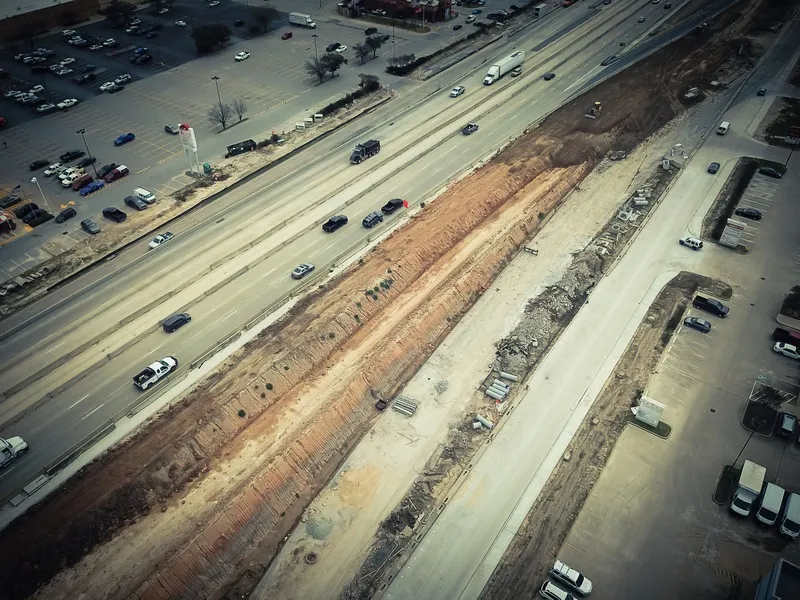The US Government House Ways and Means Committee is proposing a US$10.5 billion, eight-month transportation funding bill to push the debate over road and transit spending into the next Congress.
The proposal, which calls for a temporary extension of current transportation funding levels until 31 May 2015, comes as lawmakers try to come up with a way to replenish the Department of Transportation's depleted Highway Trust Fund before a predicted August bankruptcy date.
The traditional funding source fo
July 10, 2014
Read time: 3 mins
The US Government House Ways and Means Committee is proposing a US$10.5 billion, eight-month transportation funding bill to push the debate over road and transit spending into the next Congress.
The proposal, which calls for a temporary extension of current transportation funding levels until 31 May 2015, comes as lawmakers try to come up with a way to replenish the Department of Transportation's depleted Highway Trust Fund before a predicted August bankruptcy date.
The traditional funding source for transportation projects has been revenue collected from the 18.4 cents per gallon federal gas tax. The Department of Transportation (DOT) has said that the gap between gas tax revenue and the current level of federal road and transit spending is around US$16 billion per year.
The DOT has said it will begin cutting back on payments to state and local governments on 1 August unless Congress reaches an infrastructure funding deal.
The House Joint Committee on Taxation said the proposal would reauthorise the collection of the gas tax for eight months and transfer US$10.5 billion from elsewhere in the federal budget to close the Highway Trust Fund shortfall. This includes using US$7.7 billion marked for highways and $2 billion for public transportation systems from the federal government's general fund. The proposal would also take US$1 billion from the Leaking Underground Storage Tank Trust Fund, a funding mechanism also used in the last transportation funding bill that was approved by lawmakers in 2012.
The House has previously considered tying transportation funding to cutbacks at the US postal service, but that plan was controversial with Democrats and labour groups that represented both transportation and postal workers.
Transportation advocates, as well as a few lawmakers, have pushed for an increase in the gas tax for the first time since 1993 to help pay for infrastructure funding. Congress has been reluctant to ask drivers to pay more in the middle of an election year, however, and the White House has also said it opposes such a hike.
Under the Ways and Means committee proposal, the transportation funding would be offset by US$6.4 billion revenue from federal pension changes and US$3.5 billion from the customs fees paid by travellers who use US customs facilities.
“While it doesn’t provide as much funding as I would like – enough to get through the end of next year – it does give Congress and the tax-writing Committees ample time to consider a more long-term solution to the Highway Trust Fund,” Ways and Means Committee Chairman Dave Camp said. “A funding package that would get to the end of next year would have required both sides to make much tougher decisions – something that sadly Washington does not appear capable of doing at this time,” Camp continued.
The proposal, which calls for a temporary extension of current transportation funding levels until 31 May 2015, comes as lawmakers try to come up with a way to replenish the Department of Transportation's depleted Highway Trust Fund before a predicted August bankruptcy date.
The traditional funding source for transportation projects has been revenue collected from the 18.4 cents per gallon federal gas tax. The Department of Transportation (DOT) has said that the gap between gas tax revenue and the current level of federal road and transit spending is around US$16 billion per year.
The DOT has said it will begin cutting back on payments to state and local governments on 1 August unless Congress reaches an infrastructure funding deal.
The House Joint Committee on Taxation said the proposal would reauthorise the collection of the gas tax for eight months and transfer US$10.5 billion from elsewhere in the federal budget to close the Highway Trust Fund shortfall. This includes using US$7.7 billion marked for highways and $2 billion for public transportation systems from the federal government's general fund. The proposal would also take US$1 billion from the Leaking Underground Storage Tank Trust Fund, a funding mechanism also used in the last transportation funding bill that was approved by lawmakers in 2012.
The House has previously considered tying transportation funding to cutbacks at the US postal service, but that plan was controversial with Democrats and labour groups that represented both transportation and postal workers.
Transportation advocates, as well as a few lawmakers, have pushed for an increase in the gas tax for the first time since 1993 to help pay for infrastructure funding. Congress has been reluctant to ask drivers to pay more in the middle of an election year, however, and the White House has also said it opposes such a hike.
Under the Ways and Means committee proposal, the transportation funding would be offset by US$6.4 billion revenue from federal pension changes and US$3.5 billion from the customs fees paid by travellers who use US customs facilities.
“While it doesn’t provide as much funding as I would like – enough to get through the end of next year – it does give Congress and the tax-writing Committees ample time to consider a more long-term solution to the Highway Trust Fund,” Ways and Means Committee Chairman Dave Camp said. “A funding package that would get to the end of next year would have required both sides to make much tougher decisions – something that sadly Washington does not appear capable of doing at this time,” Camp continued.










